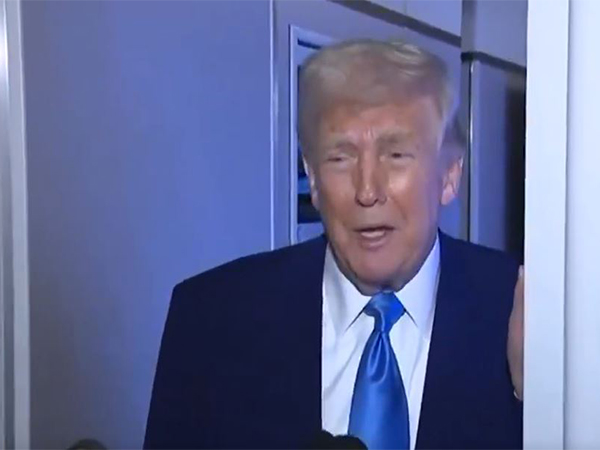China's 'think-tank diplomacy' aims to improve its image in Indonesia
Sep 03, 2022

Jakarta [Indonesia], September 4 : Partnerships between Indonesian and Chinese research institutes are an increasingly prominent part of Beijing's "soft power" strategy to improve its image in the country.
Muhammad Zulfikar Rakhmat, a lecturer at the Universitas Islam Indonesia, writing in The Diplomat said that Chinese strategy is of particular importance to its political and economic foreign policy in the Association of Southeast Asian Nations (ASEAN).
It is important to note that there is a growing negative perception of China among Indonesians because of its assertiveness in the South China Sea, its policy toward the Uyghurs in the Xinjiang region in western China, and its growing economic activities in the country.
China mainly engages with Indonesian think tanks through its Network of ASEAN-China Think Tanks (NACT) which includes as members 10 Southeast Asian think tanks.
NACT was first initiated by Chinese Premier Li Keqiang in 2013, with an aim to "contribute scholarly work to the 'diamond decade' of China-ASEAN strategic partnership."
The NACT holds regular meetings and seminars with its member think tanks in ASEAN countries to discuss the progress of China-funded projects and to identify potential future opportunities for collaboration.
China has also often invited the representatives of these think tanks and other scholars to attend meetings in China at which Chinese officials push the government's official narratives on issues like ASEAN-China Relations, global development, and disputes in the South China Sea, said Rakhmat.
Wang Zhen, a PhD Candidate at the University of Albany, SUNY, has reported in detail on China's engagement with think tanks across ASEAN.
The coordinating institution for Chinese think-tank engagement in Indonesia is the ASEAN Studies Center at Universitas Gadjah Mada in Yogyakarta. A former researcher at the centre told The Diplomat that the think-tank has received funding from the Chinese government for capacity building and for the participation of its staff in short courses and workshops in China.
Besides the ASEAN Studies Center, other Indonesian think tanks that frequently participate in activities with their Chinese counterparts include The Habibie Center, the Centre for Chinese Studies, and the Center for Strategic and International Studies (CSIS).
CSIS Indonesia has carried out research for the Chinese Embassy in Indonesia and received funding from China's National Institute for South China Sea Studies to conduct research on fisheries and on peace in the South China Sea.
In addition, China has also partnered with the Foreign Policy Community of Indonesia (FPCI) which has organized various events on China in cooperation with the Chinese Embassy in Jakarta.
In Beijing's view, think tanks can serve as an important platform to shift public opinion in Indonesia and spread its own narratives.
Through sponsoring and co-organizing events, co-publishing research, and funding research projects at Indonesian think tanks, China hopes to supplement its educational, media, and "Islamic" diplomacy in the country, said Rakhmat.


















